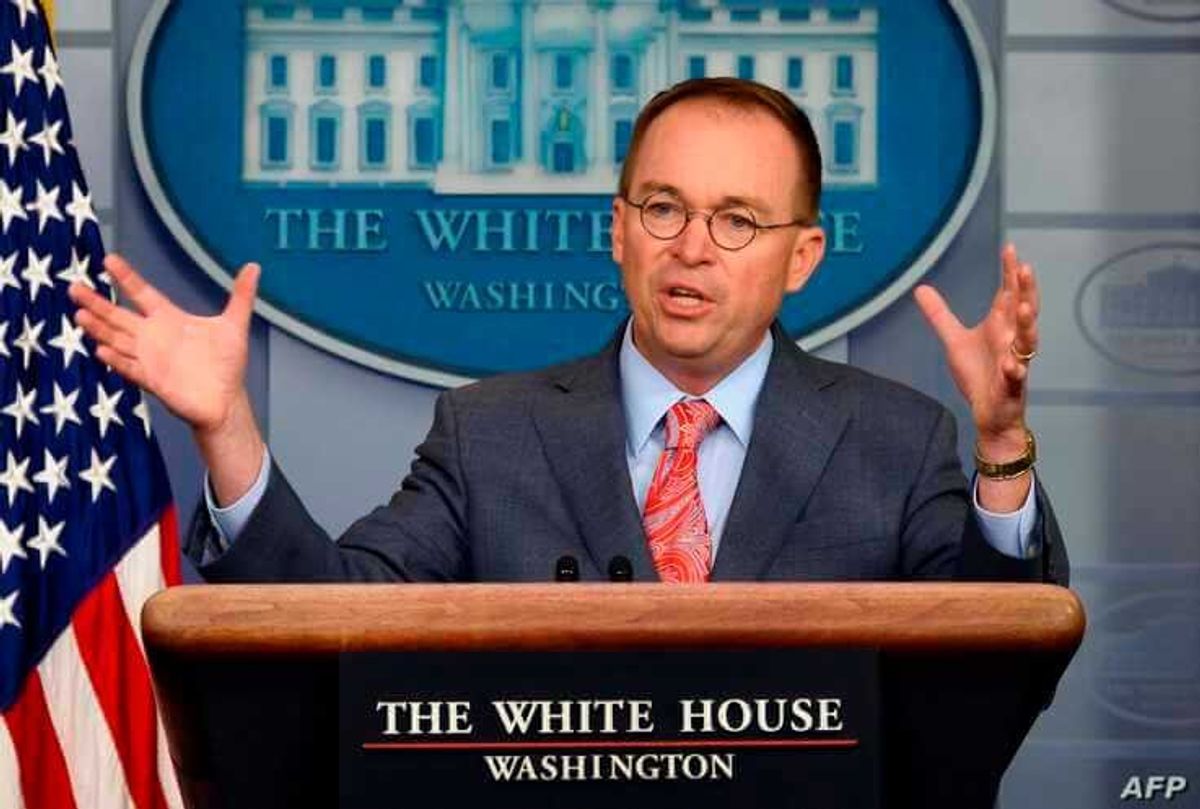
House Impeachment Panels Ask Key Trump Aide Mulvaney to Testify
U.S. House of Representatives committees leading the impeachment inquiry targeting President Donald Trump said Tuesday they want to question acting White House chief of staff Mick Mulvaney about his knowledge of Trump's efforts to press Ukraine to open investigations to help him politically.
The House Foreign Affairs, Intelligence and Oversight panels said they asked Mulvaney to testify on Friday, although it was not immediately clear whether he would appear for closed-door questioning at the Capitol. Trump has sought, with some success, to block key aides from testifying about his actions involving the eastern European country, although other diplomatic and national security officials have answered the impeachment investigators' questions.
"Based on evidence gathered in the impeachment inquiry and public reporting," the committees told Mulvaney in a letter, "we believe that you possess substantial first-hand knowledge and information relevant to the House's impeachment inquiry."
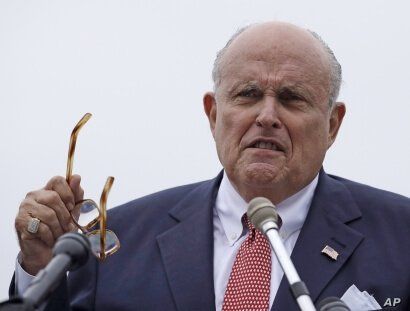
The Democratic-controlled impeachment investigators told Mulvaney that the investigation "has revealed that you may have been directly involved in an effort orchestrated by President Trump, his personal agent, Rudolph Giuliani, and others to withhold … nearly $400 million in security assistance in order to pressure (Ukraine) to pursue investigations that would benefit President Trump's personal political interests."
Mulvaney is the highest-ranking White House official the impeachment panels have sought to question.
The request to Mulvaney came as the impeachment panels released transcripts of two more witnesses who testified behind closed doors last month: Kurt Volker, a former U.S. envoy to Kyiv, and Gordon Sondland, the lead U.S. diplomat at the European Union headquarters in Brussels.
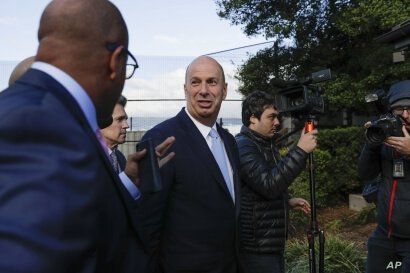
In testimony already revealed at the time he appeared before the impeachment investigators, Sondland said that Trump had delegated U.S. foreign policy oversight on Ukraine to Giuliani, the former New York mayor who is Trump's personal attorney, an edict he disagreed with but nonetheless complied with.
Sondland, a major donor to Trump's 2017 inauguration celebration, said officials were "disappointed by the president's direction that we involve Mr. Giuliani. Our view was that the men and women of the State Department, not the president's personal lawyer, should take responsibility for all aspects of U.S. foreign policy toward Ukraine."
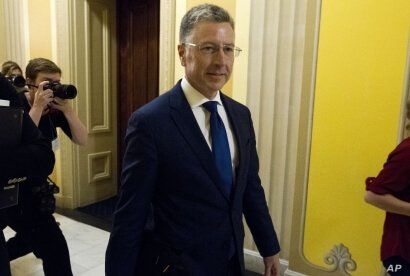
Volker also depicted Giuliani as the major force to get Ukraine to investigate one of Trump's chief Democratic challengers, former Vice President Joe Biden, his son Hunter Biden's work with a Ukrainian natural gas company and alleged meddling in Trump's 2016 election.
Volker said he was "never asked to do anything" he thought was wrong, including by Trump, but said he feared the U.S. relationship with Ukraine was "getting sucked into a domestic political debate."
Hours before he released the Sondland and Volker transcripts, the leader of the impeachment inquiry, Congressman Adam Schiff, wrote in an opinion article in USA Today that he believes that Trump has betrayed the United States by his actions involving Ukraine.
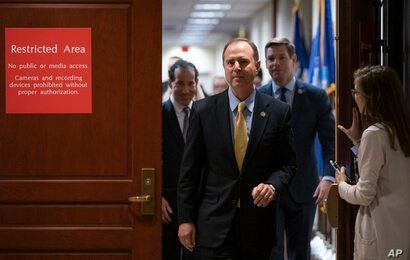
Schiff contended that the closed-door testimony in the past several weeks from U.S. diplomats and national security officials has shown that the late July call in which Trump pressed Ukrainian President Volodymyr Zelenskiy to launch investigations to benefit him politically "was just one piece of a larger operation to redirect our foreign policy to benefit Donald Trump's personal and political interests, not the national interest."
Schiff, chairman of the House Intelligence Committee, said that for more than a year he resisted calls for Trump's impeachment, believing it was intended "to be used only in extraordinary circumstances." But he said that the country's founders had enshrined in the Constitution impeachment as a remedy "when a president might come to power who would fail to defend the Constitution or would sacrifice the country's national security in favor of his own personal or political interests."
He concluded, "Tragically, that time has come."
The Sondland and Volker accounts came a day after the release of testimony from two other diplomats, Marie Yovanovitch, a former ambassador to Ukraine, and Michael McKinley, a former senior adviser to Secretary of State Mike Pompeo. Both Yovanovitch and McKinley told investigators they did not feel supported by the State Department in their dealings with Ukraine or in their relations with Trump and his aides.
Yovanovitch said she felt threatened by Trump when he described her as "bad news" in the phone call with Zelenskiy. Trump officials recalled her to Washington months before her tour in Kyiv was due to end and dismissed her.
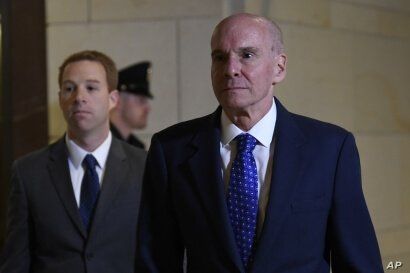
McKinley quit last month, telling the impeachment investigators he left the State Department for two reasons: "The failure, in my view, of the State Department to offer support to Foreign Service employees caught up in the impeachment inquiry, and second, by what appears to be the utilization of our ambassadors overseas to advance domestic political objectives."
In one of his Twitter comments this week, Trump wrote, "What I said on the phone call with the Ukrainian President is 'perfectly' stated. There is no reason to call witnesses to analyze my words and meaning. This is just another Democrat Hoax that I have had to live with from the day I got elected (and before!). Disgraceful!"
What I said on the phone call with the Ukrainian President is “perfectly” stated. There is no reason to call witnesses to analyze my words and meaning. This is just another Democrat Hoax that I have had to live with from the day I got elected (and before!). Disgraceful!
— Donald J. Trump (@realDonaldTrump) November 4, 2019
Trump, faced with the prospect of days of testimony against him in public impeachment hearings, has called for identifying the intelligence community whistleblower who touched off the inquiry over concerns that Trump had asked Zelenskiy for "a favor," investigations of one of the Bidens and the 2016 election that sent him to the White House.
An attorney for the whistleblower has offered to let him answer written questions from Republican lawmakers who are defending Trump, but the president on Monday said that written answers are not good enough.
"He must be brought forward to testify," Trump said on Twitter regarding the whistleblower. "Written answers not acceptable!" He called the impeachment investigation a "con."
 Former Ambassador Says she was Warned to ‘Watch my Back’Next PostUS Congresswoman Ilhan Omar Divorces Husband in Minnesota
Former Ambassador Says she was Warned to ‘Watch my Back’Next PostUS Congresswoman Ilhan Omar Divorces Husband in Minnesota







